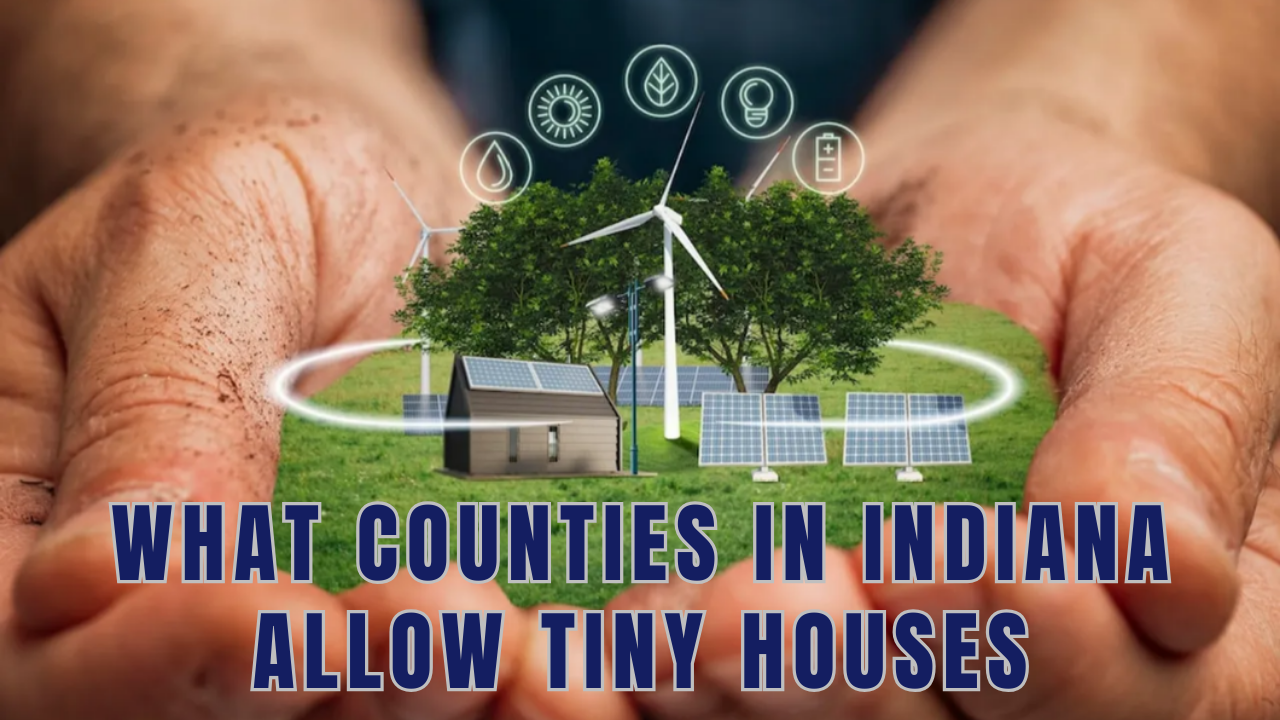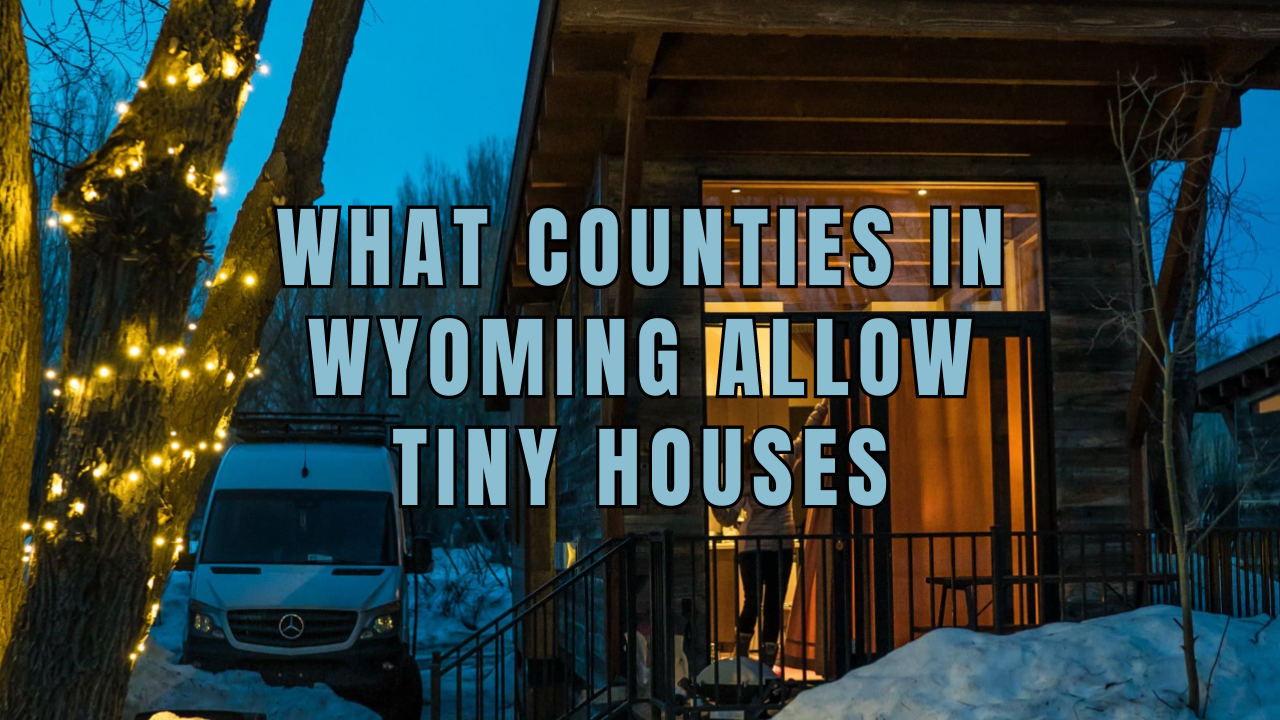Indiana residents adore their state. Because of its incredibly cheap cost of living, low crime rate, reasonably priced housing, and plenty of employment possibilities across several industries. Indiana is frequently one of the finest places to live. However, not all states have uniform laws and rules governing tiny dwellings or mobile ones.
This post will discuss the legal status of tiny homes in Indiana, the counties that permit them, and some guidelines and ordinances to consider before constructing or buying a tiny home. In addition, we will include some communities, builders of small houses, and resources for further details.
Tiny House Prices in Indiana
Now that you have set sail on your tiny house project, you are probably wondering about pricing options that fit your budget and your tiny living dreams.
Great news! We have an option for every living style and budget to help you move one step closer to your living project. Check out tiny houses for sale in Indiana!
What Counties in Indiana Allow Tiny Houses?
Indiana is a state supportive of tiny housing. The “Log Cabin Rule” governs the state’s approach to tiny houses. This disposition allows property owners to build small homes on their land. However, the acceptance and regulations of tiny houses vary significantly from one county or city to another.
Marion County
Marion County has specific regulations and rules regarding the construction and placement of tiny houses. Zoning regulations dictate where tiny houses can be located and what size they can be. It’s important for anyone looking to build or place a tiny house in Marion County to fully understand and comply with the local zoning laws to avoid any potential legal issues.

Vanderburgh County
Vanderburgh County has specific zoning regulations and rules for tiny houses. These regulations are set in place to ensure that tiny houses are built and maintained safely and legally. The local zoning regulations cover aspects such as minimum lot size, setbacks, and building codes for tiny homes. It’s important for individuals interested in building or living in a tiny house to familiarize themselves with these regulations to avoid any legal issues.
Tiny House Regulations And Rules In Indiana
In Indiana, regulations for tiny houses vary by county and municipality. Many areas have minimum square footage requirements, while others require a foundation or utilities to be connected. Additionally, zoning laws may dictate where tiny houses can be placed.
Permanent Structure Rules
The Log Cabin Rule in Indiana
The first thing to know about this rule is that it is not for tiny houses on wheels, as they are not considered permanent structures.
Indiana’s “Log Cabin Rule” allows tiny homeowners to build a tiny house on their property. The use of this structure can be recreational, for work, or your permanent residence. Unlike many other states, Indiana law permits you to live there full-time.
However, you will still need to be mindful of the local zoning rules for this structure before you begin your tiny house project, as there can be additional regulations to follow despite the statewide acceptance of tiny house structures.
It is also advisable to abide by the local zone rules and regulations to determine if you can live off-grid or go for the on-grid approach.
Temporary Structure Rules
When we talk about temporary structures, we refer to recreational vehicles. Unfortunately, as we already mentioned, the Log Cabin Rule does not encompass RVs, considered recreational vehicles, and cannot become your permanent residence in the state of Indiana.
For that reason, they need to be RVIA-certified and comply with American National Safety Institute standards 119.2.
Transitional Structure Rules
Transitional structures refer to tiny homes on wheels that can be removed from their trailers and mounted on a foundation. The regulations for these types of structures can be less clear, and it’s advisable to consult with local authorities.
In Indiana Where Can I Build A Tiny House?
The location of your tiny house is vital. Select a certified tiny house builder to guide you through the process, manage all the paperwork, and ensure your residence complies with tiny house building codes.
Indiana offers a welcoming environment for tiny house enthusiasts, with its Log Cabin Rule allowing tiny homes to be built in any county and city of the state, as long as they are on a solid, immovable foundation.
Although constructing a tiny house is a big project, it does not need to be stressful if you plan accordingly. The typical places for tiny houses include.
- RV parks
- National Parks and campgrounds
- Tiny house communities
- Private homes
Tiny House Communities in Indiana
When it comes to tiny house living, Indiana has several communities that cater to those looking to downsize and simplify their lives. These communities offer a range of amenities and social activities while also working to protect tiny homeowners’ rights. Likewise, residents can apply to private homes within these communities and enjoy a tightly-knit neighborhood atmosphere with like-minded individuals.
Green Acres Permaculture Village
Green Acres Permaculture Village is an innovative, intergenerational community integrated into an existing suburban neighborhood. This community has three homes, each housing three residents who share the permaculture grounds. The shared spaces include greenhouses, a workshop, a chicken house, a shed, a patio, a gazebo, and a yurt for visitors.
The community (established in 2009) aims to transform suburban life, offering a blend of work and play. It hosts workshops, work parties, community dinners, and seasonal celebrations, fostering internal integration and outreach to the larger community.
Key elements
- Rents are low
- The community encourages collaborative projects
- Fosters individual self-expression and entrepreneurial skills
- The residents honor their connection with the Earth and aim to live and work within a sharing economy.
Sage Valley
Sage Valley is a small, intentional community located in Worthington, Indiana. The community is committed to minimal and sustainable impacts on the environment. It is a 501(c)(3) non-profit organization that serves as an events and education center.
Sage Valley is also known as an ecovillage and is open to new residents and visitors wishing to live close to the land within the community based on the bonds and support shared by like-minded individuals.

Indianapolis’ Tiny Home Village
Circle City Villages is an organization aiming to establish a tiny house village in Indianapolis for people experiencing homelessness. The collective comprises a diverse group, including formerly homeless individuals, pastors, social workers, architects, mental health caregivers, bankers, retirees, and substance use recovery specialists. The group strongly believes in the transformative power of community, especially in helping those facing challenging circumstances.
Circle City Village (currently in the planning phase) intends to serve as a transitional housing community. The initiative aims to provide a supportive environment for homeless individuals and use their occupancy to recover and transition towards a sustainable lifestyle.
Tiny House Builders Near Me
Great Lakes Tiny Homes offers multiple tiny house designs with nationwide delivery, eliminating the need to scout for local builders to find your dream home.
Furthermore, Great Lakes Tiny Homes is an RV Industry Association (RVIA) builder. Passionate about the highest manufacturing standards and strict compliance with the building, safety, and regulatory guidelines for compact residences.
Do I Need a Certified Builder?
Yes, you do. Consider the DIY approach, but the risks are higher and the results are uncertain.
Working with an RVIA-certified builder, like Great Lakes Tiny Homes, assures you will own a tiny house manufactured according to rules and regulations.
Furthermore, it offers peace of mind because it ensures the materials on your residence are safe, durable, and top quality.
Other advantages of working with a certified builder include streamlined access to financing options and insurance coverage. Compliance with RVIA standards certifies your tiny house is a safe and habitable environment.
FAQs
Can You Make a Tiny House in Indiana Your Main Residence?
Yes, you can make a tiny house your permanent residence in Indiana.
However, be mindful of the local rules and regulation variations. The best practice is to check with your local authorities and zoning officials to discover if your tiny house adheres to residential codes and regulations, including inspections.
Do your homework and work with certified builders to enjoy the perks of a simpler, more sustainable lifestyle in Indiana.
In Indiana, What Happens if You Construct Without a Permit?
The local building department may advise you to stop working until you obtain the necessary building permission if they find out you have been operating without one. If you break construction permit rules, you might face fines of at least $500 each day. If you fail to pay the fee, your county may place a lien on your house.
Which Indiana Cities Have the Highest Number of Tiny Homes?
One of the cities’ most tiny house-friendly is Schererville, Indiana. It was among the first to permit some couples to live in mobile homes full-time. It is wonderful news for someone wishing to purchase a little house in Schererville, Indiana.
Conclusion
Tiny homes are a practical choice for those in Indiana who wish to live more simply, cheaply, and sustainably. But this way of life has drawbacks, such as construction rules, insurance, and zoning restrictions. Therefore, do your homework and speak with local authorities and professionals before purchasing or constructing a tiny house in Indiana.
Furthermore, you may search for Indiana-based small home communities and builders, such as Great Lakes Tiny Homes. You may reap the rewards of a small home in Indiana by abiding by the laws and norms and showing consideration for your neighbors and the surrounding area.





